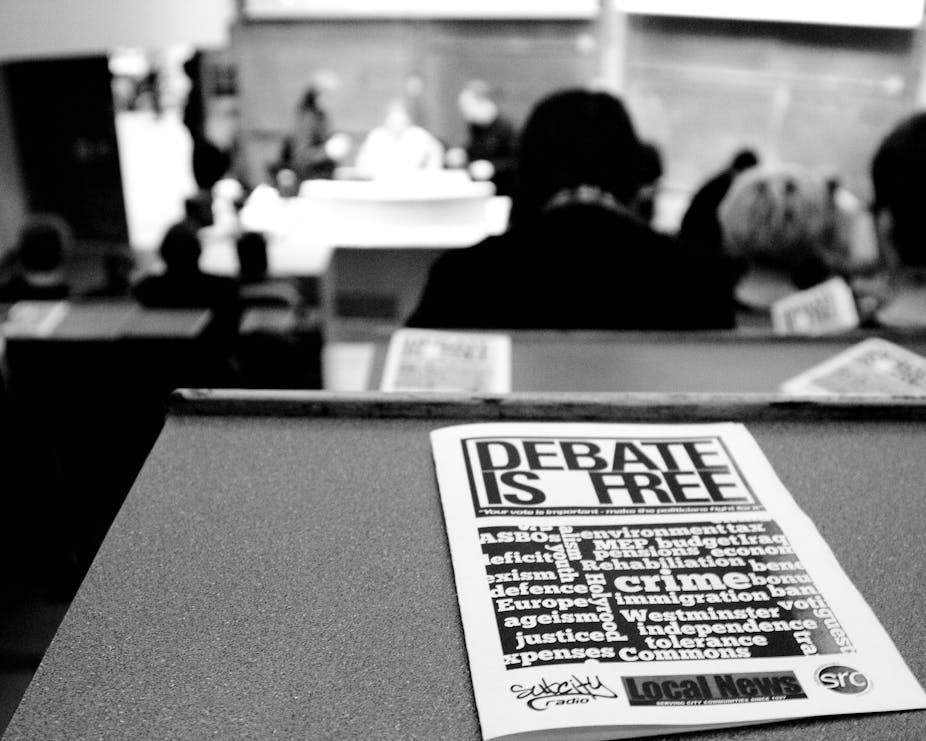Who cares what Gordon Brown says? Weighing in at this late stage to throw his well-worn Labour hat into the ring … Who cares, really, what he thinks he may add to the debate by now? Who cares what any of them say, actually?
David Cameron? Or Alex Salmond even, who, at Dundee recently, as part of our 5 Million Questions programme, was so disinclined to debate or have any sort of meaningful discussion outside the parameters of his own well practised rhetoric that our audience was allowed no time to ask even one question at the end of the session.
One might wonder, in return, why should we give any of these politicians any more talking time either? Time’s up.
Politicians have gone cold
The year has moved on. September is nearly here and it has come to my notice that though the media may be talking about things starting to “heat up” in Scotland, as James Naughtie put it, no one has much time left by now for what any politician has to say.
A recent piece by former Scottish Constitutional Convention chair Kenyon Wright cited a 2006 Joseph Rowntree Foundation report as an early signifier of where we’re all at with our political thinking in the UK, north and south of the border.
“The current way of doing politics is killing politics,” Wright said. He went on to argue that a yes vote gives a chance at least to bring a change to how we arrange our so called democracy, writing about his hopes, in an independent Scotland, to bring about “real participation by the people in structured ways in the political process”.
It strikes this writer of fiction that, in our plutocratically driven globalised world, where the divide between the super-rich and the rest of us opens up second by second into a fathomless abyss, ideas of “the people” and a “remodelled democracy” are about as imaginative as any of my stories.
Still, it was good to be reminded of how long it’s been since politics, whether from Westminster or Holyrood, has been exciting or intellectually engaging or even halfway transparent in its presentation of policy to the same “people”.
By the time we were being offered our £1,000 to be richer under independence or told that Salmond’s sums were a pack of lies, we were well past caring.
Make way for small talk
What’s interesting about the debate now isn’t what this one or that one is saying; it’s the way discussion has shifted to the personal, the particular – another sort of “people” talk that doesn’t make it onto the news.
In the remote far north where my sister lives, the campaign now is not about politicians or headlines or who said what on the Today programme, but discussions that are increasingly coming out in the open, opinions being aired, disagreements confronted.
It’s as though, now the politicians have effectively silenced themselves by their own irrelevance, people are coming out of their own silence and speaking about their lives and hopes for Scotland and Britain in a context that is not politically motivated – no one wants that job, thanks – but is framed by their own particular and local sensibilities.

As the yes campaigners come knocking on my sister’s door (sometimes as many as three a week); as local arts meetings are given over to discussions of a national culture versus local pastimes; as friends and colleagues require the clear rays of enlightenment thinking to cast illuminating beams across their muddle of arguments and disagreements … One is reminded of Scotland’s proud tradition of ethical and social debate at local level. Those discussions, in church and village halls, sitting rooms and schools, are the kinds of conversations it’s good to be part of now.
Here in Dundee I’ve been reflecting upon the clarity of that kind of enlightenment. These remarks made by “the people” may have no more currency than a vote these days – in terms of securing any real political and economic power. But it’s exciting to hear how the values of reason and thoughtfulness may play out in what everyone is saying, in the streets, in the home, in the corridors and lecture theatres of the university.
It is a deep-seated aspect of our character, this kind of talk: personal, measured, decent. Not giving in to a row, but not giving in to a sense of propriety or good manners either. It’s talking, proper, fully engaged, thinking talking.
“Mark my words,” said the taxi driver who dropped me off at the Nethergate, just by the mighty Caird Hall, itself a site of many a public discussion in Dundee’s history. “To get us all whipped up they’ll be showing ‘Braveheart’ on the telly the night before we go in to vote. But we don’t want to get whipped up, do we?” he said.
“We don’t care what the politicians say. We want to think about this thing quietly, on our own, for ourselves.”

